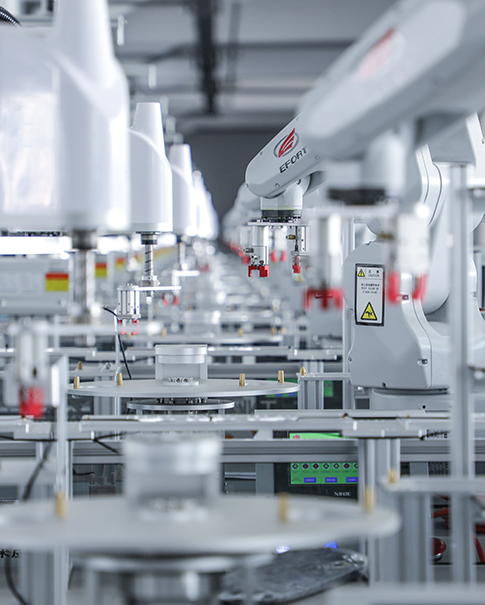Deepening Commitment to the Chinese Market: ABB's "In China, For China" Strategy
January 22,2025
Introduction to ABB’s Strategic Focus on China
As one of the most significant markets for ABB, China holds a pivotal role in the company’s global expansion strategy. With a history spanning over 110 years, ABB has firmly established itself in the Chinese market, making substantial contributions to the nation’s industrial development. Around 85% of ABB’s sales revenue in China is derived from locally manufactured products and services, a clear reflection of the company's "In China, For China" strategy.
This strong market presence not only strengthens ABB’s position within China but also enhances its global competitiveness. ABB’s commitment to advancing innovation and supporting China's transformation toward a greener, more digital economy continues to be central to its long-term strategy.
Localized Products and Solutions for the Chinese Market
ABB’s deep integration with China is evident in its development of products tailored specifically to local needs. The company’s motion control division has introduced several products designed for the Chinese market, including the M2QA, M2BAX, and M2BAF low-voltage motors, as well as the ACS580MV, ACS510, and ACS180 drives. These locally developed products have become crucial to ABB’s sales revenue and continue to grow year by year.
For example, the M2BAF ultra-efficient low-voltage three-phase asynchronous motor, classified as National Standard Grade 1 (IE5), is a notable innovation that aligns with China’s energy efficiency goals. These products are a testament to ABB’s ongoing investment in local R&D and its efforts to meet the diverse needs of Chinese industries.
Driving Digital Transformation and Energy Transition
ABB is actively collaborating with Chinese enterprises to promote digital upgrades and energy transition. By partnering with companies such as Shenyang Blower Works and Dongguan Haoxin Precision Machinery, ABB is helping industries like petroleum and packaging enhance operational efficiency and reduce carbon emissions.
For instance, ABB has provided energy-efficient motor and drive solutions to the Chinese oil and gas sector, transitioning ethylene compressors from turbine-driven to electric-driven systems. This shift not only optimizes performance but also reduces environmental impact. Through these initiatives, ABB demonstrates its dedication to helping Chinese businesses navigate their digital transformation while supporting China's decarbonization goals.
Innovation and Sustainability in China
ABB’s commitment to sustainability goes beyond offering green technologies to clients. The company is also practicing what it preaches in its own operations. For example, ABB’s Beijing headquarters has installed a 4,200-square-meter solar photovoltaic (PV) system, generating over 500 MWh of electricity annually. Similarly, its Shanghai facility has implemented a solar PV capacity of 3.1 MW, saving 1,845 tons of standard coal each year and reducing CO2 emissions by 6,300 tons.
This focus on sustainability is not only about reducing energy consumption but also about fostering a culture of continuous innovation. ABB’s motion control division has ambitious plans to further invest in China, particularly in expanding local R&D capabilities, developing products tailored to the Chinese market, and accelerating digital business growth.
Advancing Energy Efficiency and Digitalization Across Industries
ABB’s motion control division is making significant strides in helping Chinese industries improve energy efficiency and reduce carbon emissions through digitalization. By leveraging AI algorithms and big data, ABB helps industries like heating, steel, and ports optimize energy consumption and improve operational performance. For instance, ABB’s collaboration with Xinjiang Tianfu Energy Company has resulted in energy savings and carbon reduction through intelligent energy management and predictive services.
In addition to helping external clients, ABB has made remarkable progress in digitalizing its own manufacturing processes. The company’s Beijing plant, for example, has integrated automation technologies such as industrial robots and automated guided vehicles, significantly improving production efficiency. Meanwhile, ABB’s Shanghai high-voltage motor factory has deployed a Manufacturing Execution System (MES) and a 3D virtual factory tour system to enhance operational transparency and efficiency.
Conclusion
ABB’s dedication to the Chinese market is clear in its deep commitment to localized innovation, sustainable practices, and digital transformation. Through its "In China, For China" strategy, ABB is not only helping China achieve its energy efficiency and decarbonization goals but is also empowering industries across various sectors to thrive in an increasingly digital world. As the company continues to expand its investments in R&D and digital solutions, ABB is poised to play a critical role in China’s green and high-quality development journey.
 Network Supported
Network Supported